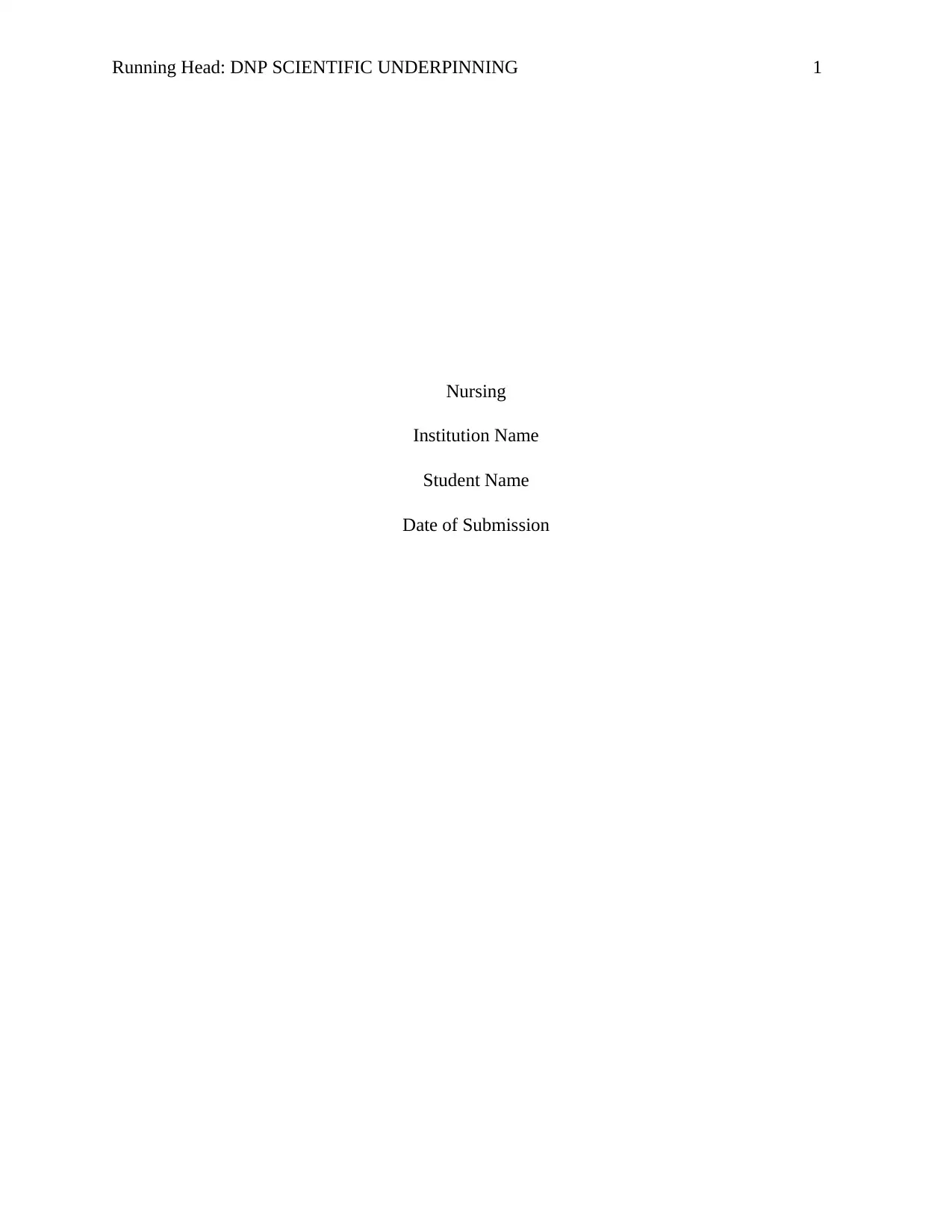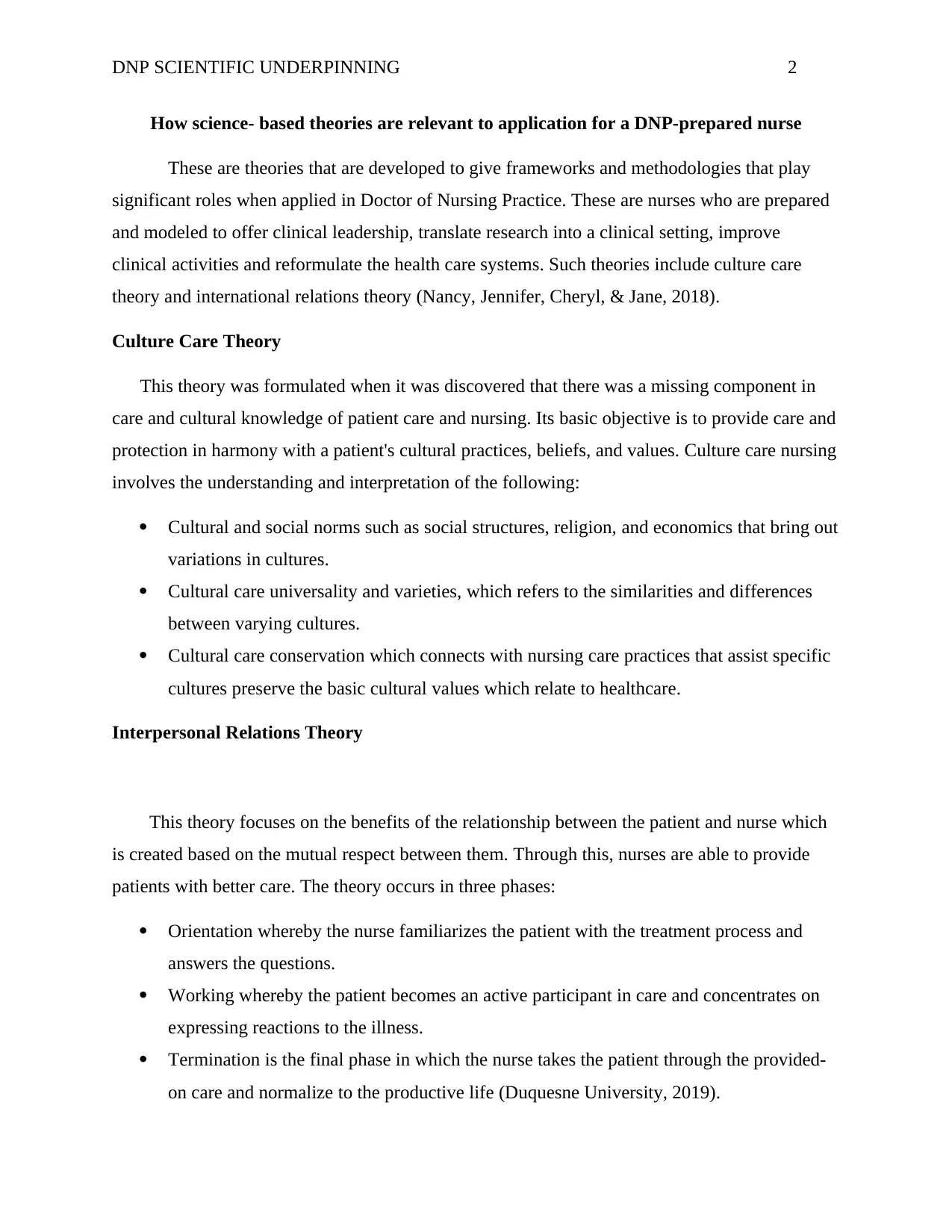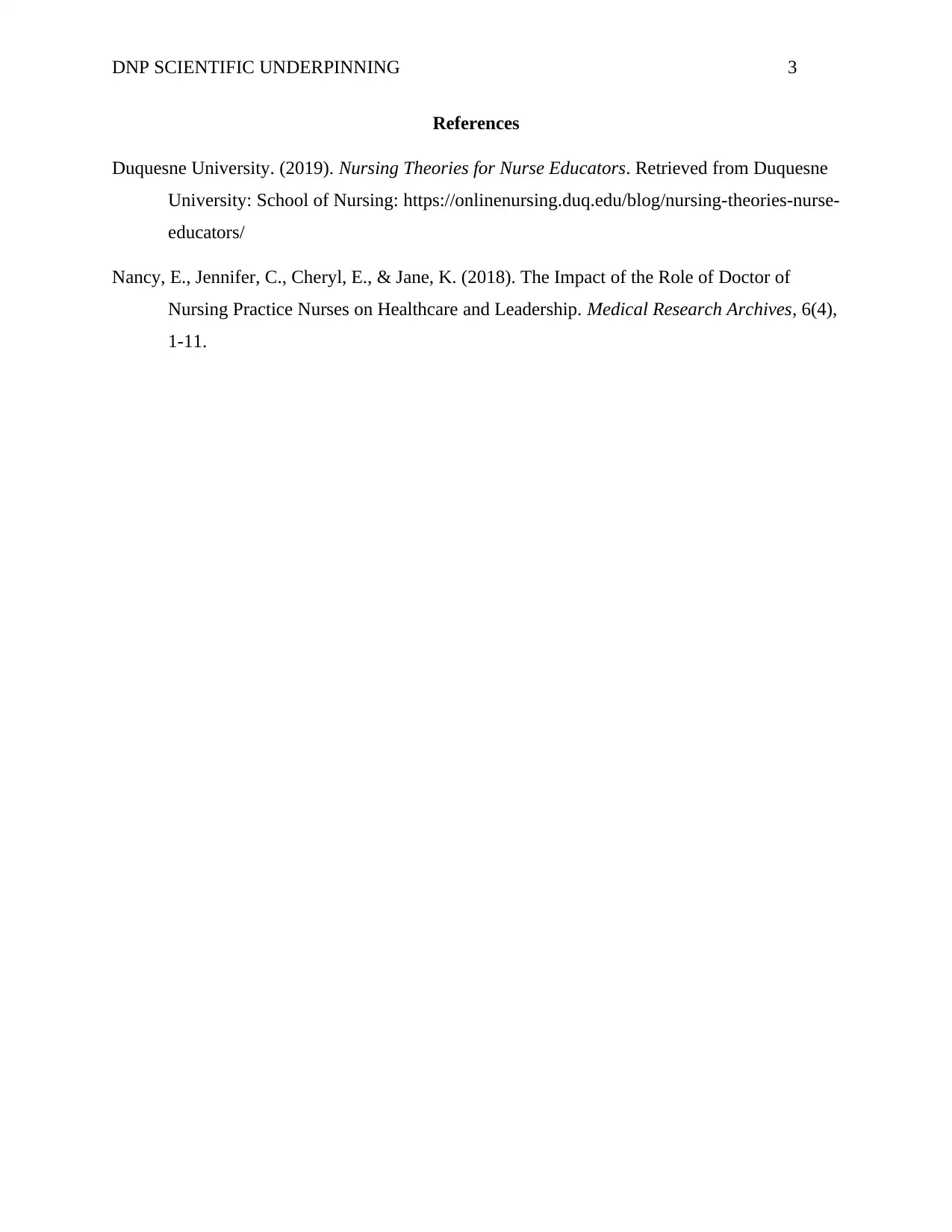Scientific Theories in DNP: Culture Care & Interpersonal Relations
VerifiedAdded on 2023/04/05
|3
|365
|326
Essay
AI Summary
This essay explores the relevance of science-based theories to Doctor of Nursing Practice (DNP)-prepared nurses, focusing on theories that provide frameworks and methodologies for clinical leadership, research translation, and healthcare system reform. It highlights the Culture Care Theory, emphasizing the importance of providing care in harmony with a patient's cultural practices, beliefs, and values, encompassing cultural and social norms, universality, and conservation. Additionally, the essay discusses the Interpersonal Relations Theory, which focuses on the benefits of the nurse-patient relationship built on mutual respect, outlining the orientation, working, and termination phases of the relationship to improve patient care and facilitate their return to a productive life. Desklib provides access to this essay and other resources for nursing students.
1 out of 3










![[object Object]](/_next/static/media/star-bottom.7253800d.svg)